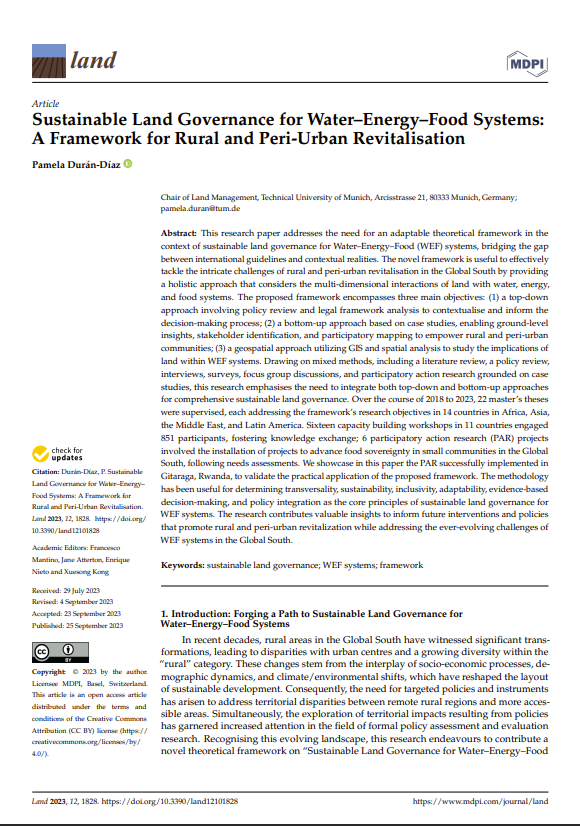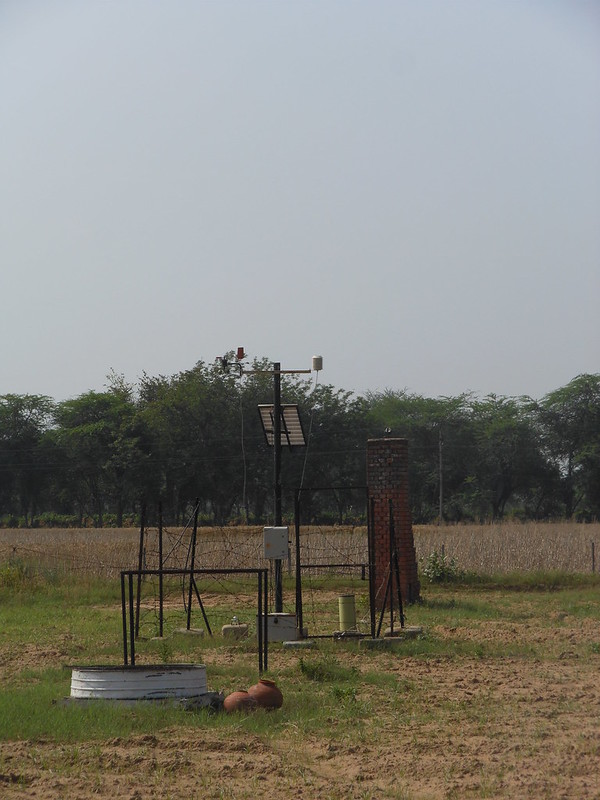Location
MDPI AG, a publisher of open-access scientific journals, was spun off from the Molecular Diversity Preservation International organization. It was formally registered by Shu-Kun Lin and Dietrich Rordorf in May 2010 in Basel, Switzerland, and maintains editorial offices in China, Spain and Serbia. MDPI relies primarily on article processing charges to cover the costs of editorial quality control and production of articles. Over 280 universities and institutes have joined the MDPI Institutional Open Access Program; authors from these organizations pay reduced article processing charges. MDPI is a member of the Committee on Publication Ethics, the International Association of Scientific, Technical, and Medical Publishers, and the Open Access Scholarly Publishers Association (OASPA).
Members:
Resources
Displaying 1 - 5 of 1524Sustainable Land Governance for Water–Energy–Food Systems: A Framework for Rural and Peri-Urban Revitalisation
This research paper addresses the need for an adaptable theoretical framework in the context of sustainable land governance for Water–Energy–Food (WEF) systems, bridging the gap between international guidelines and contextual realities. The novel framework is useful to effectively tackle the intricate challenges of rural and peri-urban revitalisation in the Global South by providing a holistic approach that considers the multi-dimensional interactions of land with water, energy, and food systems.
Social Innovation Perspective of Community-Based Climate Change Adaptation: A Framework-Based Study of Ladakh, India
Indigenous knowledge of local environments is crucial for developing innovative and contextual climate change adaptation strategies. Although the significance of community-led efforts based on this knowledge has been well acknowledged, they have not been effectively incorporated into mainstream development processes. The mountainous region of Ladakh presents a novel case of water storage in the form of ice reservoirs as an adaptive strategy against intensified water scarcity.
Can Africa Serve Europe with Hydrogen Energy from Its Renewables?—Assessing the Economics of Shipping Hydrogen and Hydrogen Carriers to Europe from Different Parts of the Continent
There exists no single optimal way for transporting hydrogen and other hydrogen carriers from one port to the other globally. Its delivery depends on several factors such as the quantity, distance, economics, and the availability of the required infrastructure for its transportation. Europe has a strategy to invest in the production of green hydrogen in Africa to meet its needs.
E-Leadership Is Un(usual): Multi-Criteria Analysis of Critical Success Factors for the Transition from Leadership to E-Leadership
Leadership helps to build strong organizations with resilient cultures. It is established that leadership needs a transition powered by digital technologies to tackle the shift from workplace culture to remote work, which is being practiced even after the pandemic to reduce operational costs and improve flexibility. The transition from leadership to e-leadership requires a profound understanding of the critical success factors (CSFs).
Effects of the Most Appropriate Proportion of Phytohormones on Tree-Ring Growth in Clones of Hybrid Larch
The increase in the atmospheric carbon dioxide concentration promotes its accumulation in trees by regulating the synthesis and transportation genes for endogenous hormones, such as IAA and GA, which are key factors in regulating various life activities, including growth rings.






